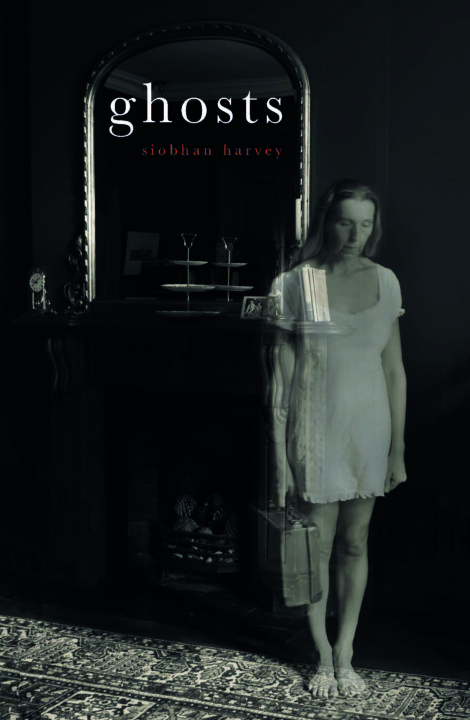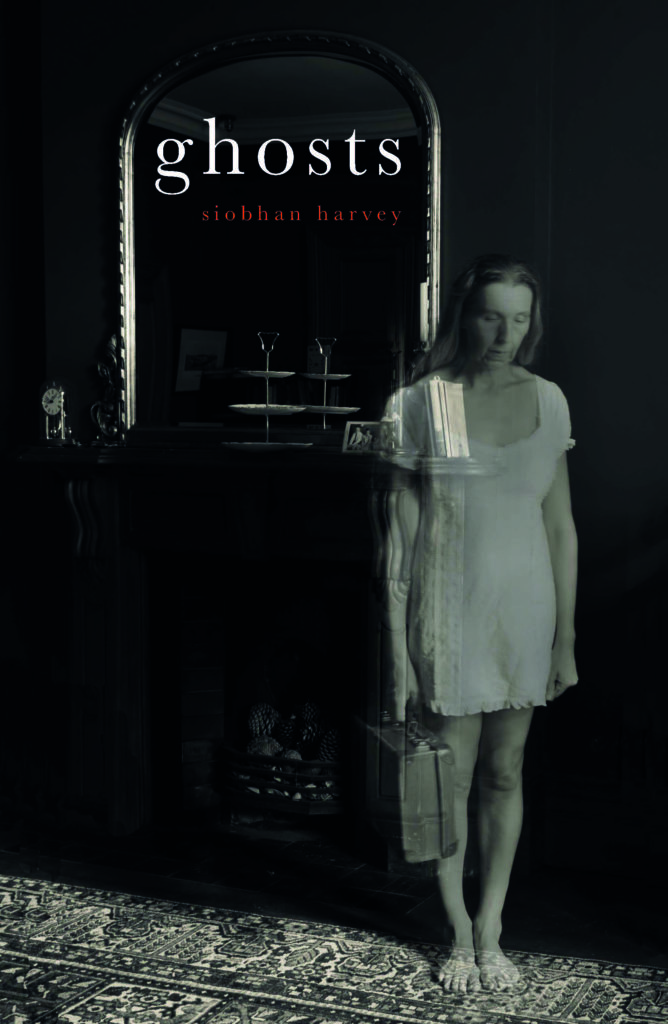Ghosts

Ghosts by Siobhan Harvey.
Dunedin: OUP (2021).
RRP: $27.50. Pb, 112pp.
ISBN: 9781988592985.
Reviewed by Mary Cresswell.
However you define ghosts, they are here in abundance. Siobhan Harvey puts all her poetic skills to bear on the ghosts we carry with us, in our minds and our dwellings, in our bodies and our souls.
The book is divided into four sections, plus a prologue, an epilogue, and a prose afterword which seems to provide autobiographical source material behind a great many of the poems.
In ‘Ghost Stories’ the ghosts are dynamic, with nothing tentative or ectoplasmic about them. They are the evicted, the ghosts of East Berlin, the unbuilt wall, Singapore, Manus and Aranui. They move, and they bring despair.
In Lockdown, they rise up, free
at last to roam the dim corridors
and empty rooms of home. My mind
is a place as forsaken as the wild
earth, forest, foreshore and ocean
forgotten by those in isolation. Here
my ghosts burst their bubbles, return
to me all I’ve long sought to misplace:
broken relationships with parents, always
distant, always pained; tortured lovers
who summon the past in fitful bursts, … (‘My Ghosts Rise up in Lockdown’ p. 49)
‘My Invisible Remains’ examines the ghosts of parents, the unhappy and inexhaustible recall of abuse. The series ‘Building Memories’ continues the images of houses from earlier in the book but gives them a bitter flavour. The lines ‘To separate/ ourselves from those who raise us/ is a fate no child should face alone’ (p. 57) show the dichotomy which has faced the poet. The inevitable break seems to shatter all connection.
But at the same time, the poet is deliberately preserving the possibility of connection. The poem ‘If Befriending Ghosts’ comes down strongly on the likelihood of never getting rid of them, and the reader is left with the sense that the ghosts are separate beings from the poet, not an integral part of her memory as we felt earlier. They are here to stay, and they are doing very nicely, thank you.
I will give them oxygen and time
I will give them fuel and flame
I will raise them to ruin, to wreck
I will raise them as lovers, as pets
I will wear them up like a leash
I will wear them down to a dust
I will be their armour, their second skin
I will be their padded cell, their asylum (p. 73)
The sense that the ghosts have become proactive and are now starting to call the shots continues in ‘Safe Places for Ghosts’, where various poems examine how a poem actually fits into the new life, into the second chance promised to migrants, or into a poet’s place in space. The sequence ‘Among the Stars’ ends with a portrait of ‘Dead Constellations’, ‘ancients emerging’:
They know their faces are faint reflections
of how life came to be. In disappearing,
they imagine the dense body of home
vanishes for good, like messages
of hope written in invisible ink
erase the burden of an empty page. (p. 85)
The epilogue is called ‘Poem, a Place Where Regeneration is Complete’ (pp. 93-4), and it begins as ‘the writer returns/ to the final poem’ in which ‘the displaced reappear, spirit/ activists standing their ground’. And then, ‘the writer relives upset.’
The poems in this collection are a worthy addition to Harvey’s already impressive body of work. Ghosts and all, it is well worth the read.
